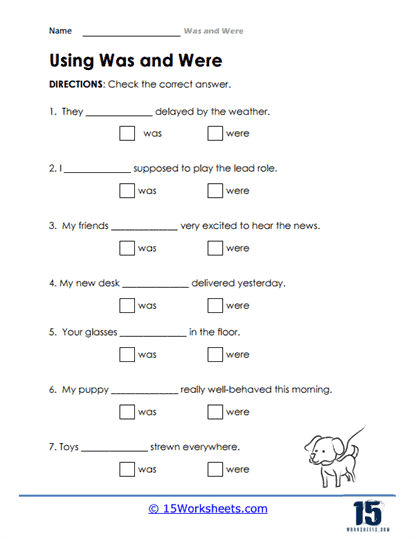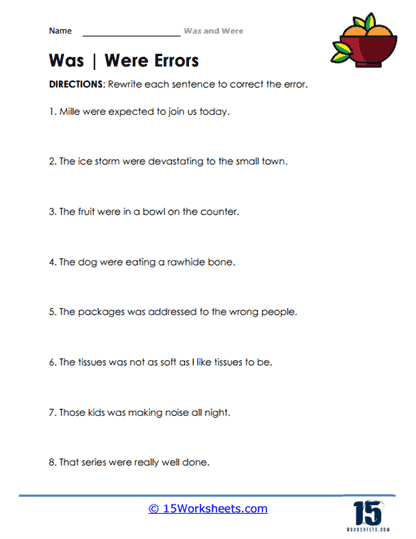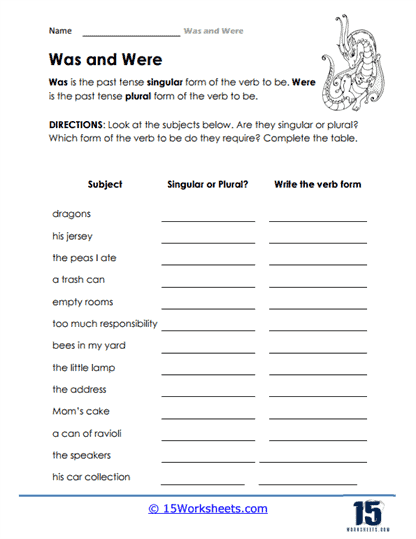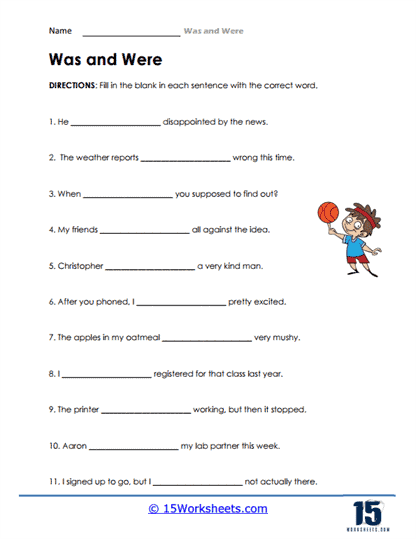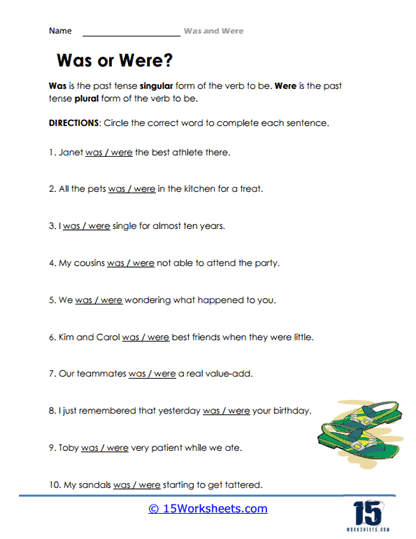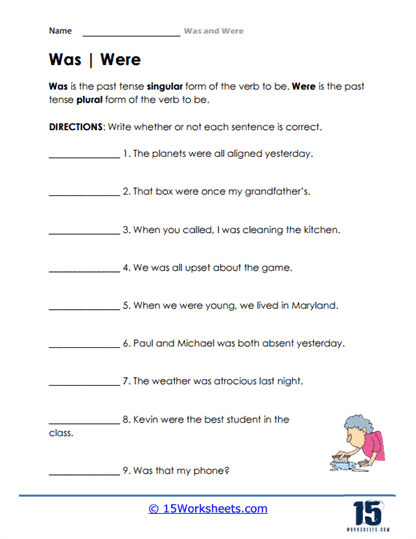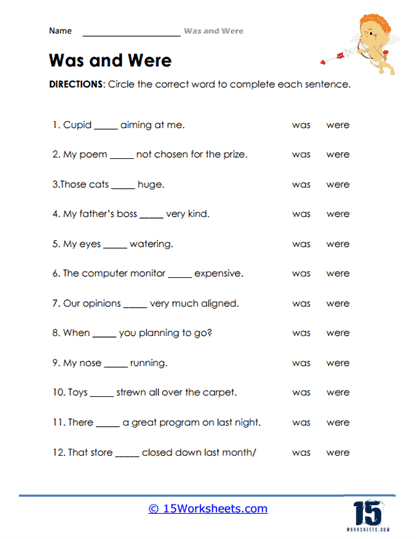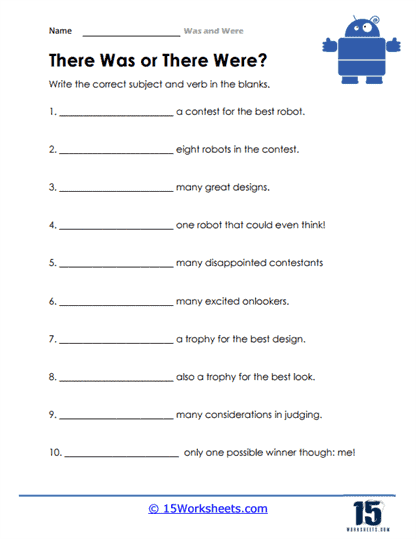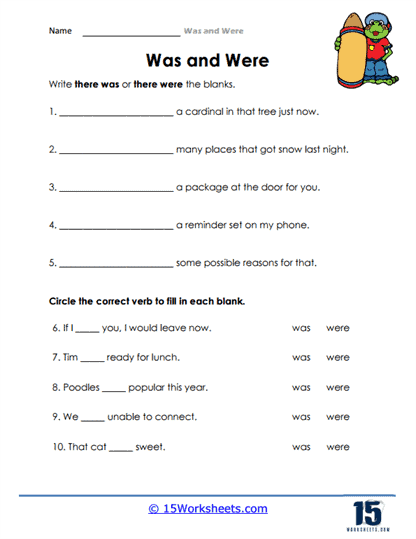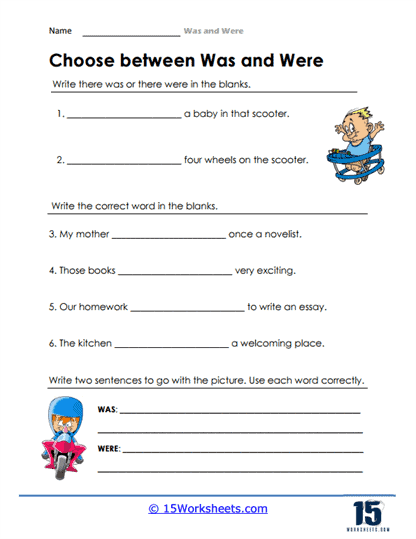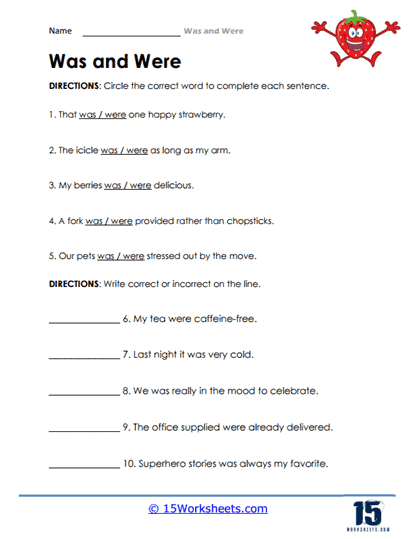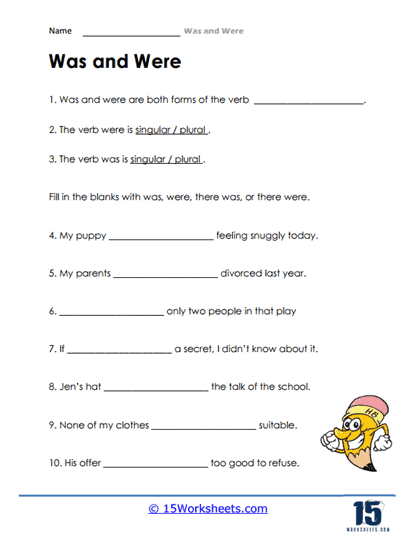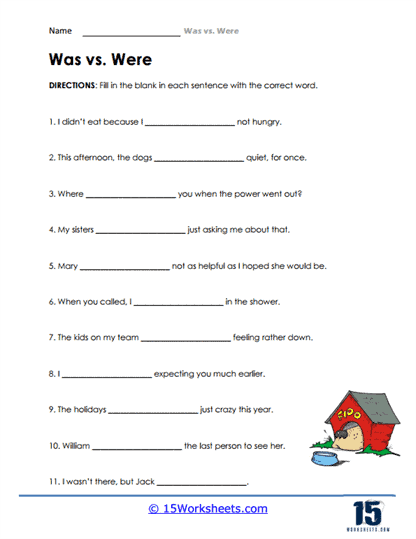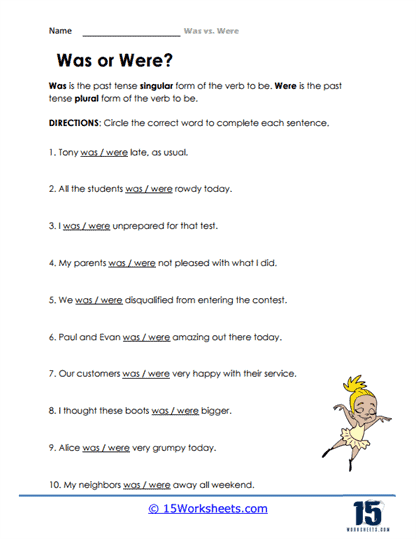Was and Were Worksheets
All About These 15 Worksheets
These “Was and Were” worksheets are an effective way for students to practice and reinforce their understanding of the past tense of the verb “to be”. These worksheets include a range of exercises and prompts that require students to correctly choose between “was” and “were” based on the subject of the sentence.
The exercises and activities include a mix of fill-in-the-blank exercises, multiple-choice questions, and short writing prompts. For example, the worksheet could present a sentence with a blank space and ask students to choose the correct form of “to be” to complete the sentence. Through these worksheets, students will:
- Know when to use “was” or “were” in sentences;
- Spot errors in sentences and correct them to reflect the correct usage of “was” and “were”;
- Write their own sentences using “was” and “were”;
- And identify if the subjects in sentences are singular or plural to determine the correct form of “to be”.
By providing students with a variety of exercises and prompts, these worksheets can help students to improve their understanding of the correct usage of “was” and “were” in the past tense, and enhance their writing and communication skills.
Was vs. Were and when to use them
“Was” and “were” are past tense forms of the verb “to be” in English. They are used to talk about actions or situations that happened in the past. Here are some examples and explanations of their usage:
Was
- Used with singular subjects (I, he, she, it). For example:
- I was happy yesterday.
- He was a great musician.
- She was at the park.
- Used to describe an action or situation that happened in the past. For example:
- I was walking home when I saw a shooting star.
- The party was so much fun last night.
- She was sick all weekend.
- Used to talk about a state or condition in the past. For example:
- I was hungry all day yesterday.
- The weather was beautiful on our vacation.
- She was tired after a long day at work.
Were
- Used with plural subjects (we, you, they). For example:
- We were happy to see each other.
- You were great hosts.
- They were at the beach.
- Used to describe an action or situation that happened in the past. For example:
- We were playing soccer when it started to rain.
- You were dancing all night at the party.
- They were watching a movie at home.
- Used to talk about a state or condition in the past. For example:
- We were so excited to go on the trip.
- You were busy with work all week.
- They were nervous before the big game.
It’s important to note that there are many exceptions and variations to the usage of “was” and “were” in different contexts and situations. However, understanding their basic meanings and usage can help learners communicate more accurately and effectively in English.

